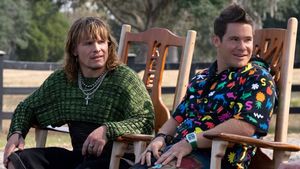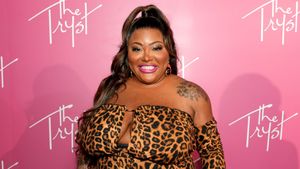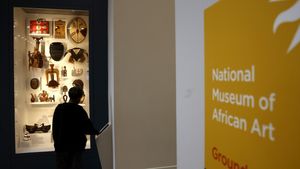
Treatment GuideJust DiagnosedSex & DatingAfrican AmericanStigmaAsk the HIV DocPrEP En EspañolNewsVoicesPrint IssueVideoOut 100
CONTACTCAREER OPPORTUNITIESADVERTISE WITH USPRIVACY POLICYPRIVACY PREFERENCESTERMS OF USELEGAL NOTICE
© 2025 Pride Publishing Inc.
All Rights reserved
All Rights reserved
Scroll To Top
By continuing to use our site, you agree to our Private Policy and Terms of Use.
According to key portions of the Kaiser Family Foundation's survey of Americans, the data reveal that: >'The share naming HIV as the most urgent health problem facing the nation has dropped precipitously -- from 44% in 1995 to 17% in 2006 and to 6% today; > The share of people ages 18 to 29 who say they are personally very concerned about becoming infected with HIV declined from 30% in 1997 to 17% today; > Respondents who said they'd heard, seen, or read "a lot" or "some" about the problem of HIV in the past year declined from 70% in 2004 to 45% in 2009; > The Centers for Disease Control and Prevention estimates HIV rates are seven times higher among African-Americans and three times higher among Latinos than they are among white Americans. But fewer members of these communities say HIV is a "more urgent" problem now than in 2006 (declining from 49% to 40% among African-Americans and from 46% to 35% among Latinos); and > More than half (53%) of nonelderly adults say they have been tested for HIV, including 19% who say they were tested in the past year.
From our Sponsors
Most Popular
Lexi Love comes out as HIV+ after Trump deletes federal resources
January 23 2025 11:23 AM
Ricky Martin delivers showstopping performance for 2024 World AIDS Day
December 05 2024 12:08 PM
Trump's orders prompt CDC to erase HIV resources
January 31 2025 5:29 PM
California confirms first case of even more deadly mpox strain
November 18 2024 3:02 PM
This long-term HIV survivor says testosterone therapy helped save his life.
December 16 2024 8:00 PM
Plus: Featured Video
Latest Stories
Grindr is reminding us why jockstraps are so sexy and iconic
May 02 2025 5:36 PM
Broadway's best raise over $1 million for LGBTQ+ and HIV causes
April 03 2025 7:15 PM
Season 4 of The Switch on resilience & radical self-love returns this spring
March 26 2025 12:20 PM
BREAKING NEWS: Trump admin moves to end federal HIV prevention programs
March 18 2025 6:10 PM
A camp for HIV-positive kids is for sale. Here's why its founder is celebrating
January 02 2025 12:21 PM
Decades of progress, uniting to fight HIV/AIDS
December 01 2024 12:30 PM
Climate change is disrupting access to HIV treatment
November 25 2024 11:05 AM
HRC holds 'die-in' to protest Trump health care cuts
April 28 2025 2:11 PM
Two right-wing Supreme Court justices signal they may uphold access to PrEP and more
April 21 2025 4:10 PM
The Talk Season 5 premieres this spring with HIV guidance for the newly diagnosed
March 26 2025 1:00 PM
Jess King is here to help you live your happiest, healthiest life yet
March 24 2025 4:35 PM
Gerald Garth is keeping people of color happy and healthy through trying times
March 11 2025 3:38 PM
Tyler TerMeer vows to continue to fight for health care for all
January 28 2025 3:00 PM
'RuPaul's Drag Race' star Trinity K Bonet quietly comes out trans
December 15 2024 6:27 PM
500,000 Children at Risk: PEPFAR Funding Crisis
April 08 2025 3:51 PM
Discover the power of Wellness in your life
March 26 2025 12:41 PM
Celebrating Black History Month with our annual African American issue
February 01 2025 3:28 PM
Plus nominated for 2025 GLAAD Media Award
January 22 2025 12:42 PM
AIDS Memorial Quilt displayed at White House for the first time
December 02 2024 1:21 PM
Hollywood must do better on HIV representation
December 01 2024 9:00 AM











































































